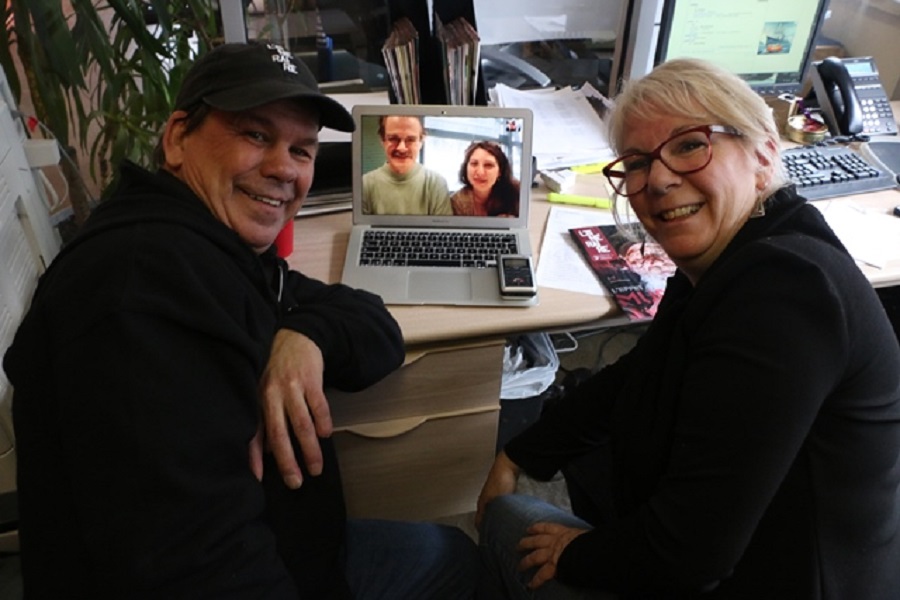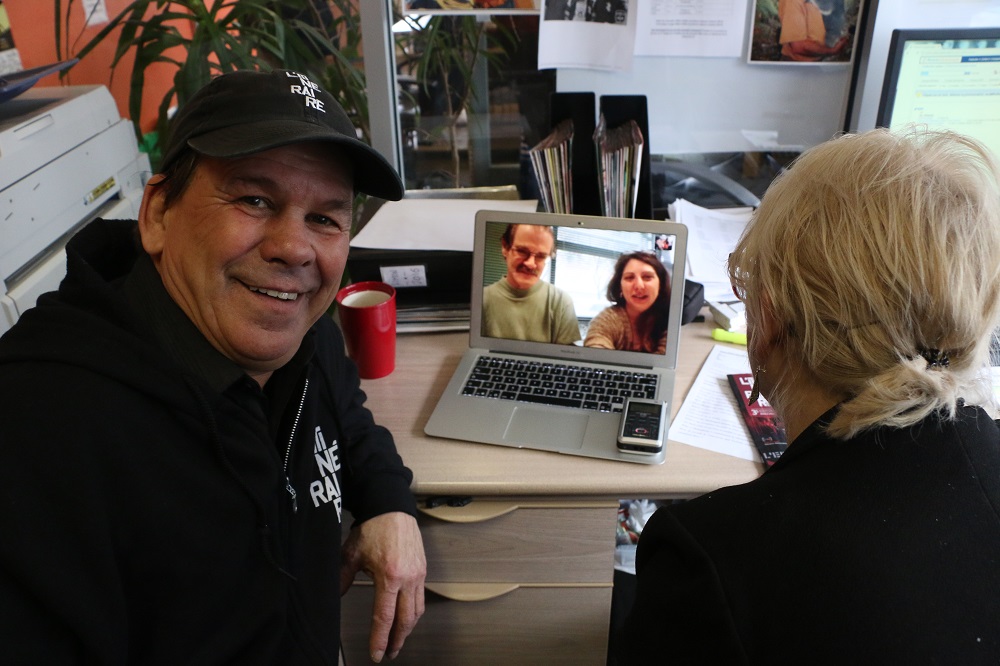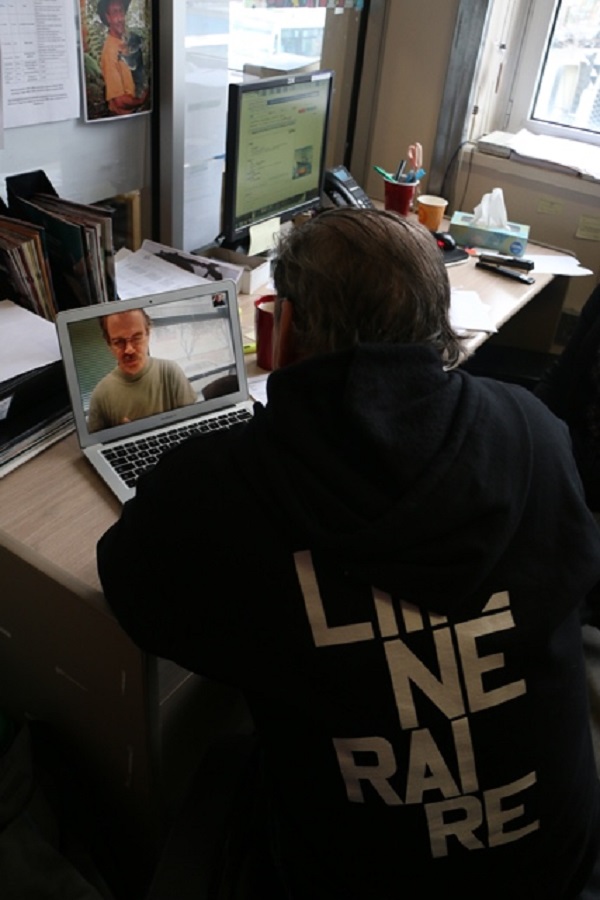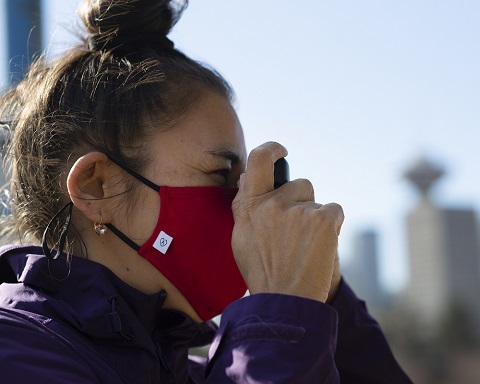In honour of #VendorWeek 2018, Megaphone vendor James Witwicki and L’Itinéraire vendor Yvon Massicotte had a ‘face-to-face’ interview to swap experiences of how both wound up selling street papers. Read their conversation below.
YVON: James, what are the circumstances that led you to become a vendor for Megaphone?
JAMES: It’s both a beautiful and traumatic story! I have a degree in English literature, but in order to support myself, I worked in construction. Then one day, my life took a turn when my wife left. It was in 2010, I was 48 and I had come to live in Downtown East Side – east of Vancouver city centre, a disadvantaged neighbourhood that was the hardest hit by the Fentanyl crisis. I decided that I no longer wanted such a physically demanding job and that I wanted to work in the field that I studied. I made contact with one of Megaphone’s projects, Hope in Shadows, and I was put to work selling the calendar that they publish.
YVON: Have you ever been homeless?
JAMES: Yes. When I arrived in the area, I was homeless, and, you know, that is a symptom of mental illness, which I have, and is why I got help. But I spent 7 months on the streets. It’s a tough and notorious neighbourhood. There’s a lot of drugs, and overdoses. But it’s a community that I really like, because there are resources and great people there. I wouldn’t want to live anywhere else. And yourself? Have you ever been on the streets?

YVON: Yes. 11 years ago, I had an accident, when I was 54. A tree fell on top of me. I was self-employed for 30 years but with the injury, I was unable to work. I was completely bent over and I walked with a stick. All of the doctors I saw said that they couldn’t do anything for me. I ended up on the streets for four years. I finally found a doctor who said that he could help me. He operated on me and corrected my spine. One year later, I arrived at L’Itinéraire because my standard of life was extremely poor with the amount of benefits that I received. I started selling the magazine so that I could start living a bit better. After a few months, I had become a good seller. Today, I’m really involved in what goes on at L’Itinéraire, I’m even part of the management board. However, now I’m 65 and I think that from next year, I’m going to slow down a little. I often write for the magazine. And you?
JAMES: Yes, Megaphone must have published at least 20 of my poems over the years, and even more articles.
YVON: For my part, I started by writing the stories of vendors and short texts, but since last year I have been encouraged to write even more – articles, columns and reports. It’s not easy, but I’m learning a lot and I like it! I also give lectures regularly in schools and universities.
How has Megaphone changed your life?

JAMES: I was involved with Hope in Shadows, which was then a separate entity from Megaphone. I was taking pictures for the calendar. Then I started working with the magazine. At that time, I was living on the street, which is a dark, harsh environment. Both organisations have allowed me to escape from that environment and focus on something beautiful, of interest to people in the community, like Stefania (the magazine’s editor-in-chief), who help me find my voice and express my creativity. Megaphone for me is like a sanctuary, just like the church I attend. I feel safe and well supported here. It helps me deal with life, especially when people fall like flies around you.
YVON: How much do you sell the magazine for?
JAMES: We buy it for $0.75, and we sell it for $2. We make a profit of $1.25.
YVON: For us its half and half. We buy the magazine at $1.50 and sell it for $3.
JAMES: Tell me about where you sell your papers.
JAMES: I have two spots. The first one is at the Stadium Chinatown skytrain station on Beatty street. The spot is always bustling with people from the business district. It gets a lot of customers. My other spot is on Robinson, one of the most famous streets in Vancouver. I work in front of a liquor store, there’s a lot of people and a lot of diversity. It’s a great place for people watching.
YVON: Tell me about your clients. Am I correct in saying that it’s a bit like being a street psychologist.
JAMES: Yes, in a way. For me, each client is an interaction. For example, in addition to the magazine, I sell our collection of poems. A pair of young Japanese students who came here to learn English bought one, along with our app one day. Just showing them how to pay with the app and download the book was funny. Despite the language barrier, we had a lot of fun. And I always remember when I have a good interaction with my clients.
YVON: Vancouver has the highest rents in Canada. What do people with low incomes do?
JAMES: You’re right. The situation has reached a critical level. I remember when I was at university in the 80s and I lived in the Kitsilano neighbourhood, where all but 1% of the housing was occupied. Today, that figure is even lower. So it’s a crisis each time someone moves whether they’re rich or poor. When you leave an apartment, you have to move heaven and earth to find another. That’s why a lot of people have become homeless in that area.

YVON: Where do you live at the moment?
JAMES: I’m lucky to be living in one of the best social housing complexes in the city. It’s a 5 story building right in the heart of the city. My apartment is 475 square foot with a big dining room on one floor and a big living area. Its clean. It costs 30% of my income. It’s really better than what I deserve.
YVON: Here at L’Itinéraire, we have access to a lot of services such as our café where we can eat two meals a day. We offer training for new vendors, mentors, workshops on journalism and IT, cultural activities, and much more. In addition to the magazine, what other services do you have at Megaphone?
JAMES: We don’t have a café but we can get snacks. We have access to workshops to help us with our sales and writing workshops.
YVON: James, it was a real pleasure to talk to you!
JAMES: You too, Yvon! Take care.
Translated from French to English by Louise Wilson
You can read more about what’s going on during #VendorWeek 2018 here.




















